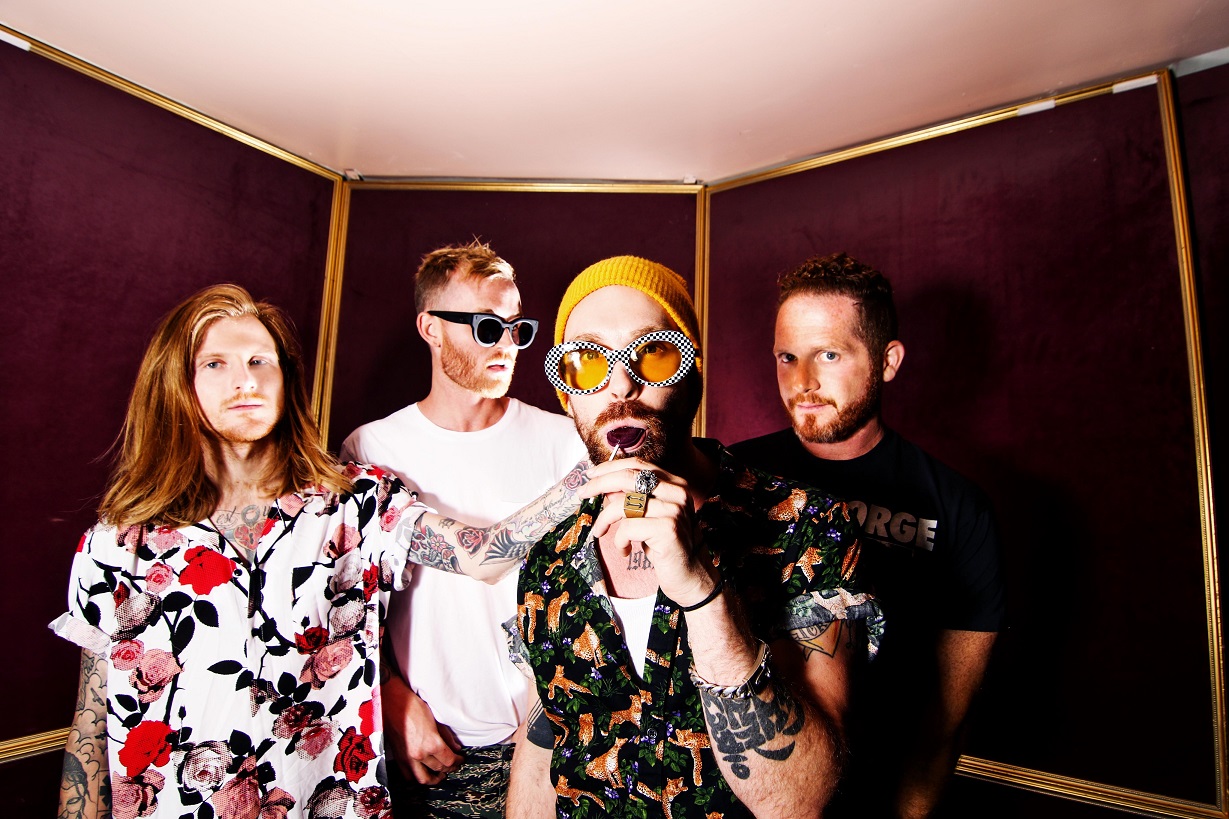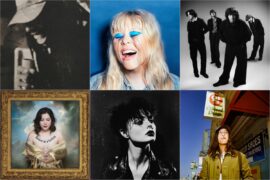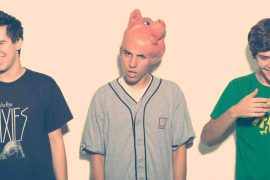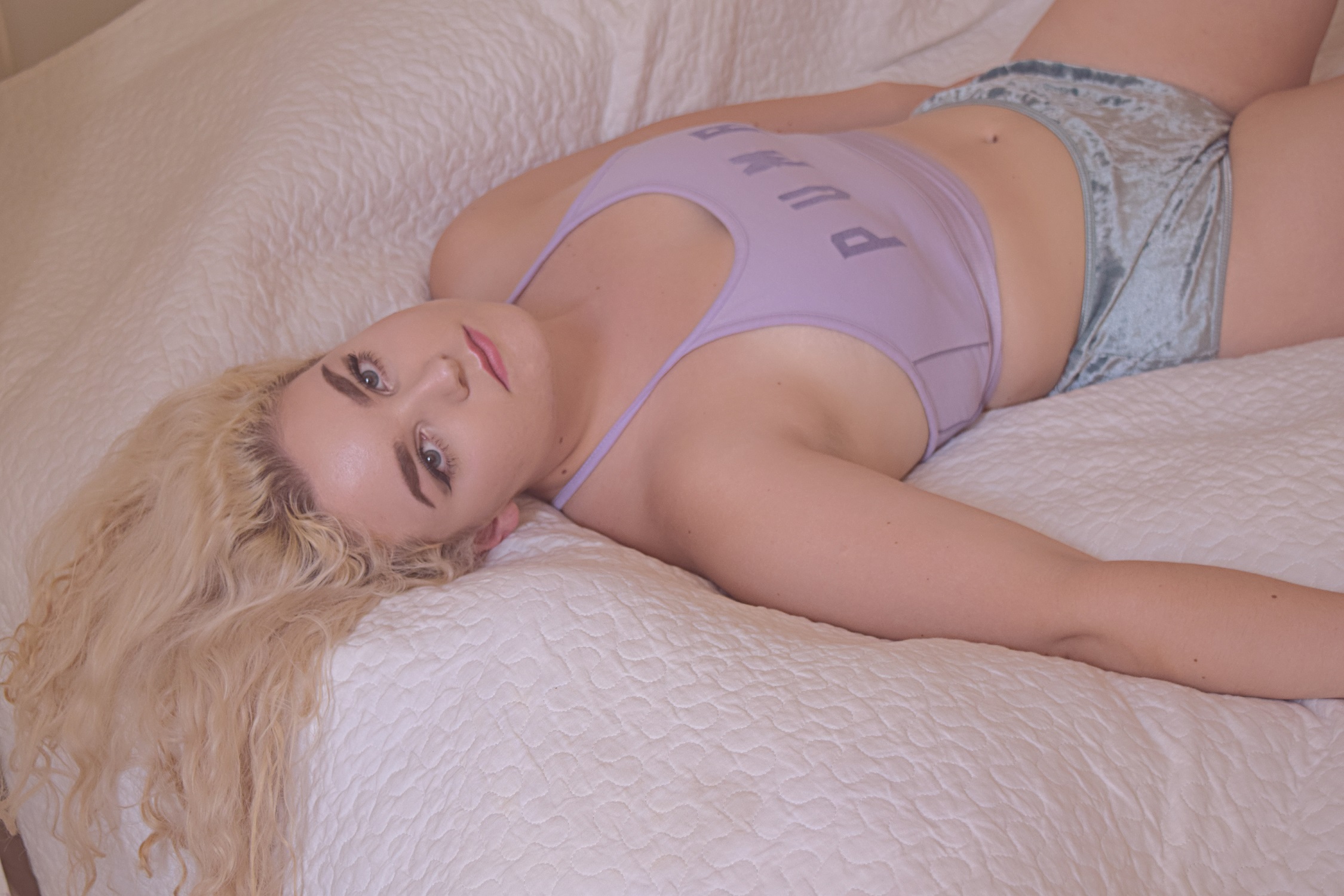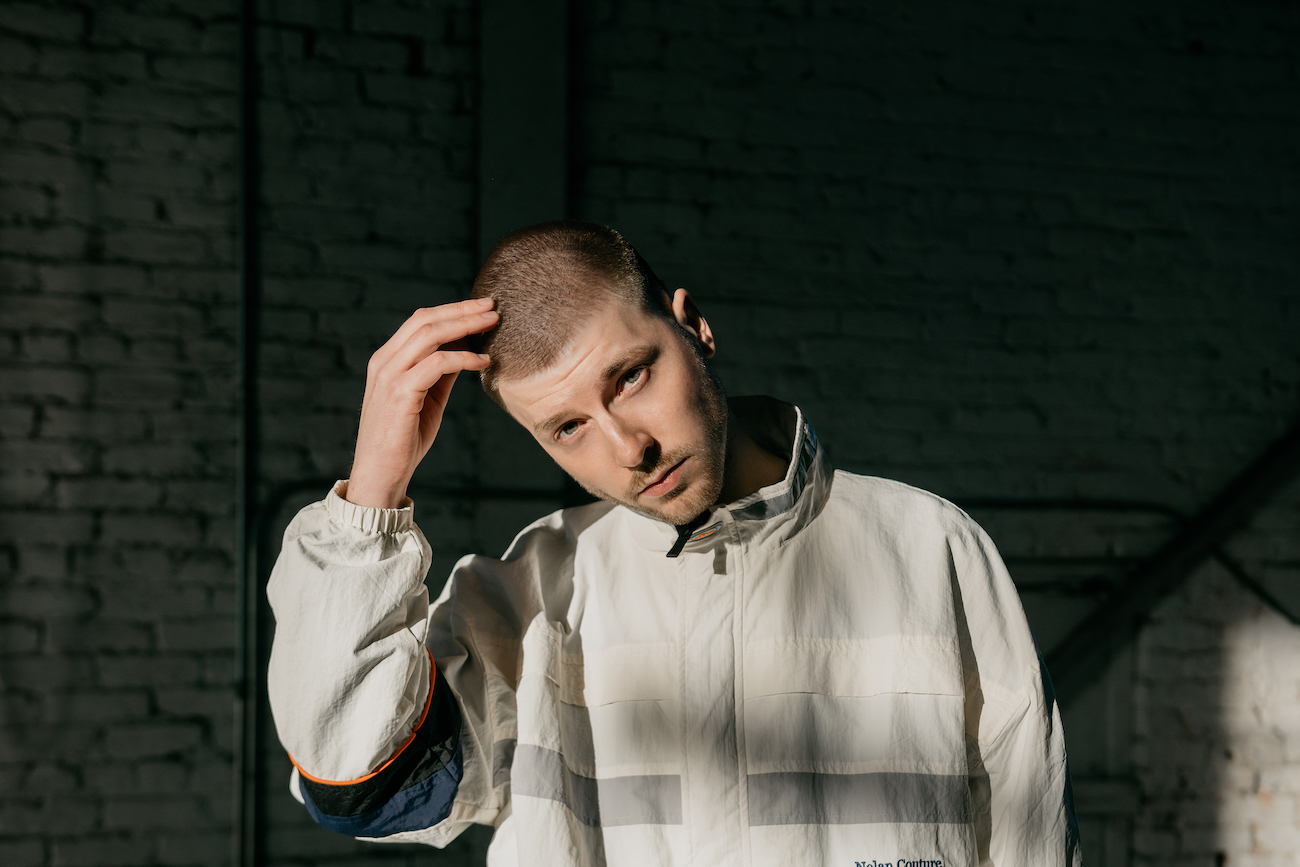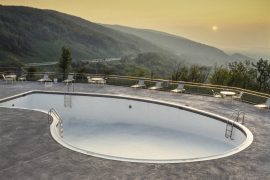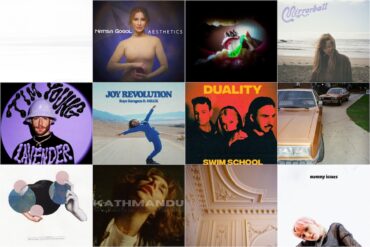LA artist-to-watch Lee Lewis formally introduces himself in a candid conversation with Atwood Magazine, diving into the vulnerable depths of his debut EP ‘Something Burning,’ an achingly intimate and all-consuming seduction of smooth, sultry R&B and smoldering soul that instantly sets Lewis apart as a singular powerhouse of passionate, breathtaking sound.
for fans of The Weeknd, Sam Smith, Lewis Capaldi, James Arthur
Stream: ‘Something Burning’ EP – Lee Lewis
This is a cry for help, essentially. I’m out of control, so the ‘Something Burning’ is me – I’m burning and it’s out of control.
“I wear my heart out on my chest,” Lee Lewis sings at the start of his debut EP.
It’s the bare-naked truth, and the perfect introduction to an artistry built around unfiltered, unapologetic self-expression. Lewis’ songs were themselves a form of therapy and healing, and so it comes as no surprise that they are as cathartic as they are confessional. The Los Angeles-based singer/songwriter dwells in the deep end of life’s emotional spectrum as he untangles the brutal web of inner conflict and turbulence that defined his twenties, unpacking his identity and lived experiences to discover his actual voice as a person: In other words, his humanity.
An Atwood Magazine artist-to-watch since his very first single, Lee Lewis holds nothing back on the seven-track Something Burning, an achingly intimate and all-consuming seduction of smooth, sultry R&B and smoldering soul. It’s an unforgettable entrance, and one that instantly sets Lewis apart as a singular powerhouse of passionate, breathtaking sound.
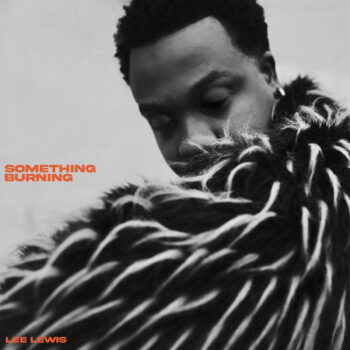
I wear my heart out on my chest
I’ve had a good ten years of rest
Send me someone, send me anyone at all
If I bleed I’m meant to bleed
And what I see I’m meant to see
Send me someone, send me anyone at all
I need a lover and I don’t care how far I fall
– “FUL,” Lee Lewis
Released April 24, 2024 via Bright Antenna Records, Something Burning is simultaneously gorgeous and gut-wrenching: A beautifully bold, emotionally charged collection of reflections, reckonings, statements, and truths from an artist for whom music is so much more than pure entertainment.
“I’ve never had the opportunity to tell my stories,” 29-year-old Lee Lewis (née Justin) tells Atwood Magazine. “Especially as a Black queer person, a Black queer man, I have struggled with expressing myself in any way in this world because so many different areas tell me how to be. So I started to use music and making my own music as a tool, almost as a therapeutic tool, so I could heal through some things and get some things off my chest.”
A classically trained opera singer from Los Angeles, Lewis cites inspirations from both classics – folks like Donny Hathaway and Gerard Souzay – and contemporaries like Adele and Sampha. His own own music sounds more in line with the songs off The Weeknd’s Beauty Behind the Madness than perhaps anything else – dark and brooding, intimate yet expansive – and it’s just as well: His own journey is one of burnout and revitalization, trauma and healing, self-destruction and rebirth.
His first few songs already expressed as much: Last September saw the release of his debut single “Willing & Able,” a heart-on-sleeve outpouring of love and longing into which the artist channeled the deepest and rawest parts of his humanity. Atwood Magazine labeled the song “both fresh and timeless,” naming him one of our 2024 Artists to Watch in the process. “It’s his beautiful dark twisted melancholy: One of two passing ships in the night, always out of sync. It’s never quite the right time… but he’ll wait.”
You tell me about other guys and come to me for advice
While I just smile and reply, “just give it time”
But then I wake up and the idea of us is on my mind.
Im staying up taking notes of everything that I know
About the man that you’re owed
Hold me while I wait
Wait for the day
That you say you’re able
I’m willing to stay
I’ll wait for the day
That you say you’re able
Successive singles “Delusion” and “FUL” continued to build out the artist’s world, with the former offering a particularly bold, brooding eruption of sweet soul, feverish emotion, and raw romance. Angst and unrest are some of the key elements permeating throughout Something Burning, as – together with a slew of trusted friends – Lewis works through the person he’s been, the person he is, and the person he wants to be.
But he isn’t singing into a dark, unknowable abyss; his unrest, often soaked in heavy beats, warm guitar licks, smoky synths, and seductive atmospherics, looks inward as he works on himself in real time, actively listening and participating in his own healing.
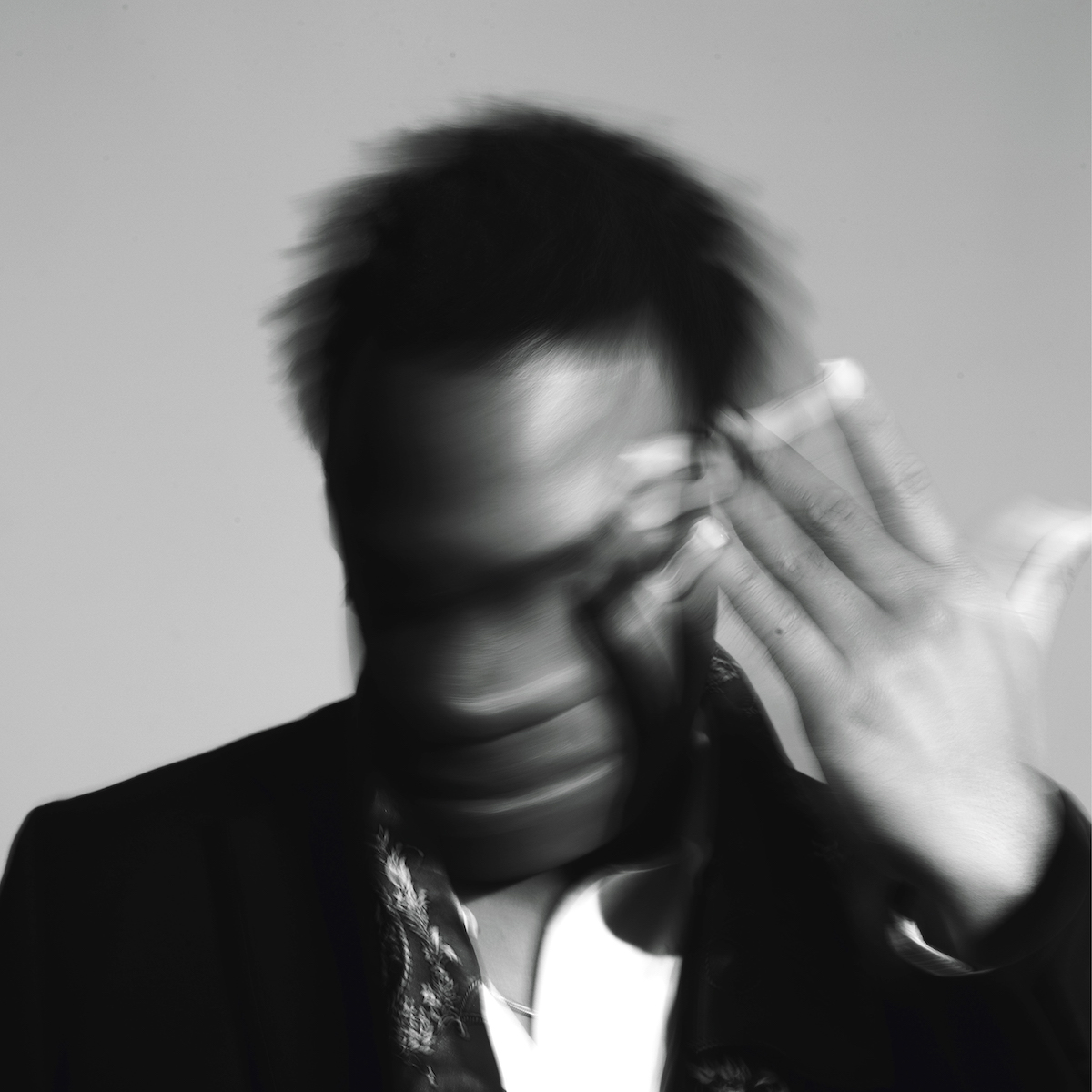
I hope that it resonates with people, but I am doing this for me as well. I’m trying to heal from mistakes and heal from past trauma.
For Lewis, this project is a reclamation and an assertion of his full, unadulterated self. “I’ve realized that Black queer people, in particular, we have always had to modify ourselves to make us palatable and accessible for everybody else,” he explains. “As a Black man, I was raised to behave a certain way, so I’m not perceived as a threat. And for my own safety, as a gay guy, that space isn’t always most welcoming to Black people. There are so many different intricacies between the both that, for most of my life, up until the last couple of years, I’ve had to modify myself for everybody else.”
Through songwriting and therapy, Lewis is finally letting his inner light shine.
“This project for me is really the start of me being able to put my experience, my emotions, my feelings first, and to be completely honest. I’m so lucky to do it through music because it makes me feel the most safe. It is my most vulnerable medium, but it’s also my strongest space,” Lewis shares.
“I’m a singer, and it’s been a blessing to be able to finally be completely honest and vulnerable, which are things that people like me don’t usually get to do. I’ve taken away that from this process that music is actually the thing that makes me feel the most human, and it’s allowed me to be so much more open to the people around me, and free. In so many ways, this project has helped me find my actual voice. I had my voice as a singer, fine, but my voice as a person has come from writing these songs.”
Don’t wanna waste no time with an eye closed
Make you something you’ve never shown
I’ve been blind since the first time
Tied our hands ’til they intertwined
Breaking all the rules that I’ve been told
Crossing lines, but I should’ve known
This would be like the last one
Is this my delusion?
– “Delusion,” Lee Lewis
Lewis ensures we feel what he feels as he pours every piece of himself out through his songs.
No stone feels unturned, no shadow unexplored; he’s diving deep, and returning the surface with nuggets of pure gold. This is, without a doubt, the start of something very special. Get to know Lee Lewis in our interview below, and dive into the beautiful burning depths of his debut EP Something Burning, out now via Bright Antenna Records!
— —
:: stream/purchase Something Burning here ::
:: connect with Lee Lewis here ::
Stream: “Willing & Able” – Lee Lewis
A CONVERSATION WITH LEE LEWIS
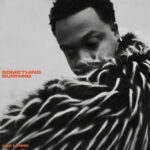
Atwood Magazine: It’s great to finally meet you, Lee! How did you start making music? Where did that spark come from for you?
Lee Lewis: I love that question; I actually started with classical music first. That was my thing for a very long time. I had been studying classical voice from maybe eighth grade through college, and I was singing jazz and pop standards in between and stuff, and Broadway stuff but the goal was to be an opera singer at a major opera house. So, I grew up in LA and I took voice lessons at the Colburn School in Downtown. And then, I don’t know, in high school, I went to LACHSA, the arts high school in LA, was in their opera program, competed in classical voice competitions on the weekends, did opera summer camps. So that was the thing that I was doing. And then it was also my ticket to college; I went to a Conservatory in Cincinnati and studied opera performance there.
I graduated in 2017, but while I was there, I was like, “I am not a good student.” [laughs] In classical music, you have to have the best work ethic of anybody and the most passion, because it’s an under-appreciated art form. It’s old. It’s a bit elitist, so you really had to be in it if you wanted to do it. So I would come home in the summers and I was like, “I’m gonna do music business internships, ’cause I was like, I don’t know what the hell to do with my life now because I thought I was gonna be an opera singer and that’s not gonna happen.”
But then I came back to LA and some friends asked me to sing some backup for them, so I started doing some backup vocals for my friend’s group called FARR. I did that a little bit as a way to retest my interest in singing, because I lost the passion in college. And then people kept asking me to do that, and then I was like, “You know what? I’ve never written about myself. I’ve never written at all, because in classical music, you do what’s already been made.” That’s part of the job.
I’ve never had the opportunity to tell my stories. Especially as a Black queer person, a Black queer man, I have struggled with expressing myself in any way in this world because so many different areas tell me how to be. So I started to use music and making my own music as a tool, almost as a therapeutic tool, so I could heal through some things and get some things off my chest. And I’ve always had a love of soul music and classical music. So I ended up pulling a lot from Donny Hathaway and singers from that era, but also I love Sampha and Moses Sumney, and Lianne La Havas. And then from the classical front, I still love art song and Gérard Souzay, and all of these beautiful baritone singers, ’cause I’m a baritone, not a tenor, despite the falsetto stuff, I have a baritone.
So I started making music and I started to slowly get better at writing. I only really started writing in 2019. It hasn’t been that long and I really don’t have that many songs written, but I’m excited to now have a voice in an area that I was very involved in at one point and then pulled away from. So it’s funny that it’s come to this full circle thing. I never sang in falsetto, in college. It’s a big no-no… and then all of a sudden, I started doing it!
Do the songs on your debut EP tell a story of some kind, or are they the cream of the crop, the best of the best that you've written over these past five years to be your introduction?
Lee Lewis: I didn’t go into any of these thinking to make an EP. I was writing songs and they happened to be about a similar overall experience, which is my dating life and the rollercoaster that that has been in my mid to late 20s. I was writing about my experiences. And by the end of it, unfortunately, I realized that there was a real common thread here; that this EP is about growth and setting up boundaries and learning from past mistakes.
But no, I went into them starting in 2019. I wrote “FUL” in 2019, “Rockabi” in 2020, and then the rest were spread out over those next few years. They’ve taken many different shapes. I had no intention of putting the songs out at one point. I wanted to do this because it was helping me through these stories; I didn’t go into it with an EP in mind. It was to write about what I’m going through and let me relearn my voice outside of the classical space, and see how it fits into other genres. Now, I know the best space for me as a singer is this pop-soul, pop-R&B area at the moment. Overall, it was a great learning experience in many ways as a singer, as a writer, but also as somebody who was processing mistakes and experiences in a very pivotal time in my life.
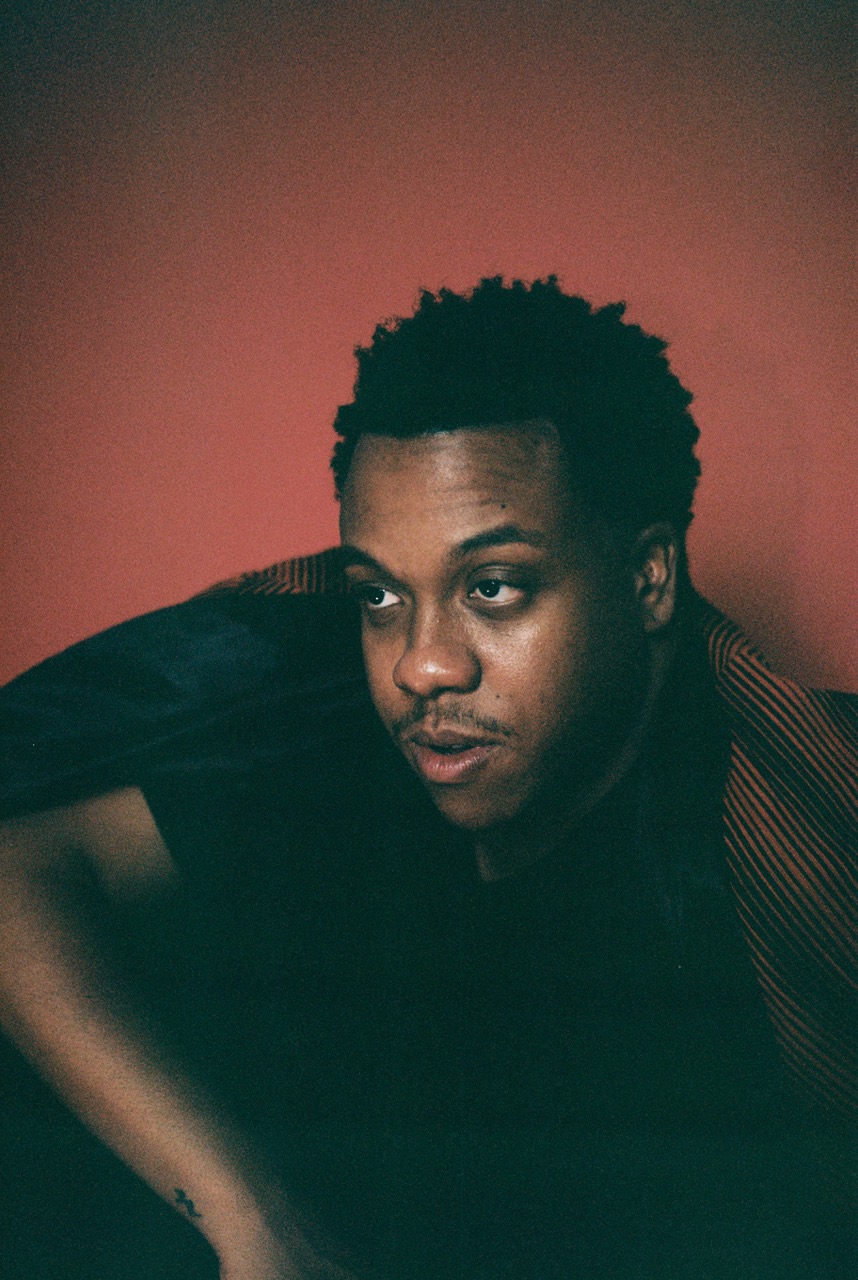
I realized that there was a real common thread here; that this EP is about growth and setting up boundaries and learning from past mistakes.
How do you feel writing these songs and making music helped you unpack what you were experiencing at the time – between relationships, figuring out who you were, and learning how to express yourself?
Lee Lewis: Well, for one, the beauty of making music out of your experience is that you get to turn something that’s a little ugly or painful into something that’s not! Particularly with the song “Rockabi,” I wrote that with my buddy Joseph Luca and it’s essentially a story about me in my early 20s being involved with a married man. The story is not great, but I got to learn through it, through talking with him and writing with him about it. We accompanied it with Jon Joseph’s production, which we went for this very retro soul, pretty sound. The story is not great. It was a mistake, but I got to process it and learn from it from writing about it and talking about it, and then I got to put it to some nice music, which makes me feel less bad about it when I listen.
All of the writing experiences I’ve had have been very helpful for me. The idea of getting these thoughts and whatnot out of my head and onto paper or into another medium is great. And then also I’ve noticed as I’ve released music, it’s resonated with people and I do not take that for granted. I never expected that to happen, but that makes it a more fulfilling process as well, knowing that when I put out “Rockabi,” I’m gonna be a little worried about my parents hearing it and that being out, but I know that there’s going to be some sort of audience that has been in that situation or connects to it, and that is cool. That’s something I did not have when I was doing classical music. I didn’t have the opportunity to tell my stories, and now I do – and I’m not the only person that is dealing with this stuff.
One of the things I've enjoyed about connecting with your music is not only your phenomenal voice, but also the emotions behind it. Do you feel like you've been able to break down barriers for yourself in these past couple of years through music and songwriting?
Lee Lewis: Yeah, I’ve grown significantly, particularly in the last two years, and I’m very happy about it. I definitely needed to do it. Creating music in combination with going to therapy has been a game changer for me. ‘Cause they offer different types of therapy for me. With music, I get to use my voice, my instrument, which in itself is a physical act of expression for me, and then therapy, I get to talk through things and stuff like that. They’ve both helped a lot, in terms of getting me into a better place. Writing has helped me become an infinitely better communicator. When I am going through confrontation, I actually now will write out all my thoughts before I can express it verbally to the person. So, they’re all interchanging with each other, but the person I am today, I’m way better than I was even just two years ago.
The communication, it’s helping with friends, family, romance. There’s obviously still areas for growth, but I’m actively learning through it as I make music, and I’ve become more self-aware of my experiences as well. If I have some sort of issue with somebody, I’ll go and deal with it and then afterward I will find myself writing about it in some way. And I’m not trying to drag everybody’s name through my stuff, but it’s very helpful for me. I’m working through my problems in many different ways now and before, I was holding everything in.
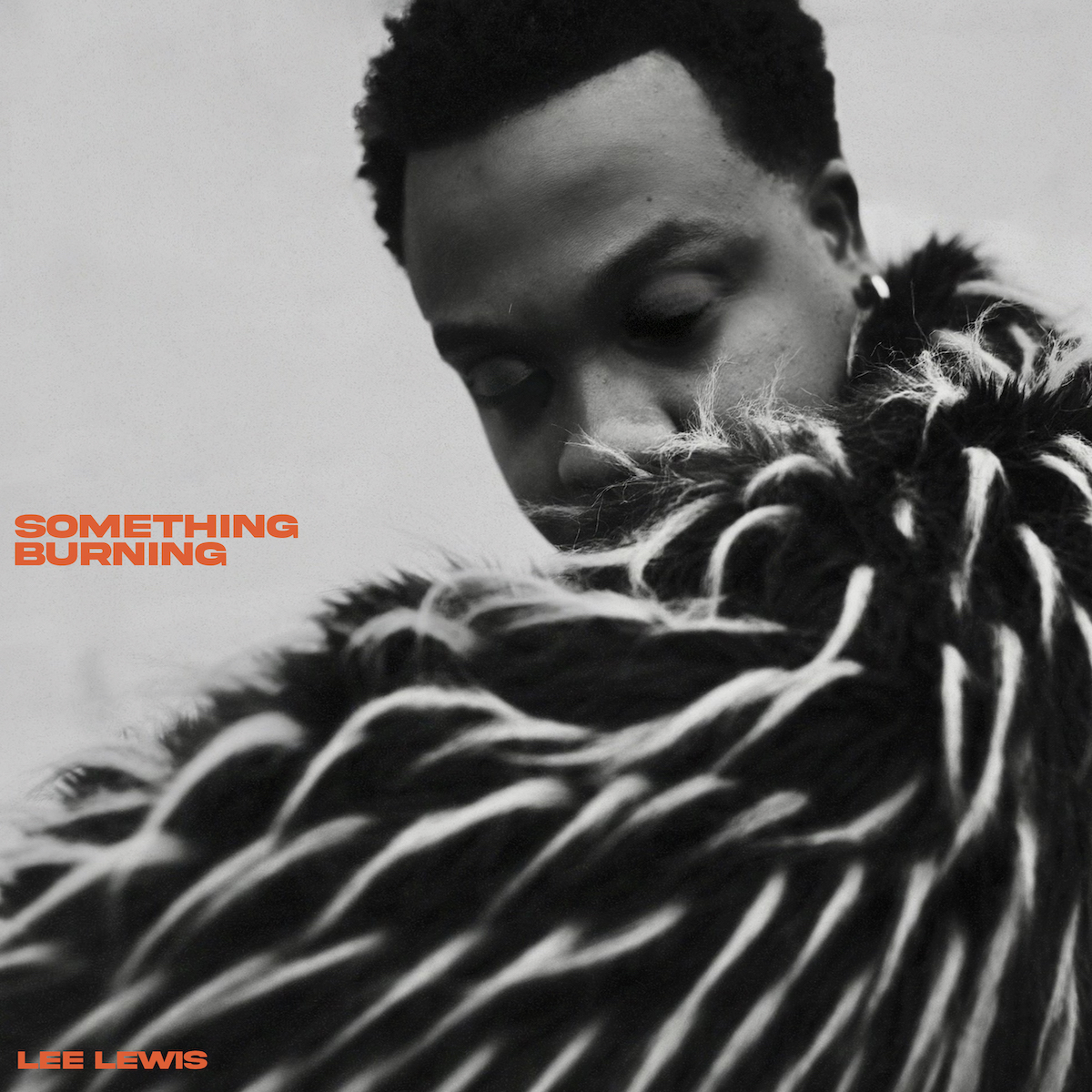
The beauty of making music out of your experience is that you get to turn something that’s a little ugly or painful into something that’s not.
That idea of writing everything down before you approach conflicts, that's good life advice for anybody really. The EP’s title Something Burning is very intentional. While the vision may have been to bring together the best of Lee Lewis from 2019 to 2024, can you talk about the title and how it captures the songs within?
Lee Lewis: I never realized how difficult it was picking a title for an EP. A song is easy, it’s much shorter, but I was talking to one of my very good friends, Shala, who I’ve written with on some of these songs. We went to college with each other, same voice program and everything. And I was like, “I don’t know what to call this.” So, we brainstormed for a week or two, and we had random poetic names like opaque and random words that didn’t actually mean anything or weren’t really connected with what I was writing about.
I started to think about how I felt as I worked through this project, top to bottom and was writing over the years, and I was like, the past five years have been extremely chaotic for me and lots of mistakes, lots of wins, lots of ups and downs. But the title is essentially like I don’t know, it’s a younger me being like, this is a cry for help, essentially. I’m out of control, so the ‘Something Burning’ is me – I’m burning and it’s out of control. But then on the flip side, it was like, as I reached the end of the EP process, I guess, I was thinking about it and I was like, this is also the whole rising Phoenix thing. I was like, I’m burning, but I’m about to emerge as something so much better than I was when I started writing these songs. Sometimes when I listen to this music, I start laughing ’cause I’m like, what the hell was I… What was going on?
So it’s a two-sided coin, where it’s a cry for help, I’m burning up and it’s getting out of control. And then it’s the other side where I will emerge from this. This is not it. And truly, this is the beginning for me. And it represents even the whole last chapter of my life coming to a close, the post-college classical music, conservatory version of me, which was a bit more reserved and insecure, and whatnot. And the new version, which is I’ve gone from Justin Lewis to Lee Lewis, and that’s been an internal transformation, but also it’s showed up in other parts of my life where I’m a lot more outspoken and opinionated, and more comfortable in my skin. So, it’s a bit of both. And then we picked that photo because the jacket looked like flames and I was like, this is the title. That’s what we’re going with.
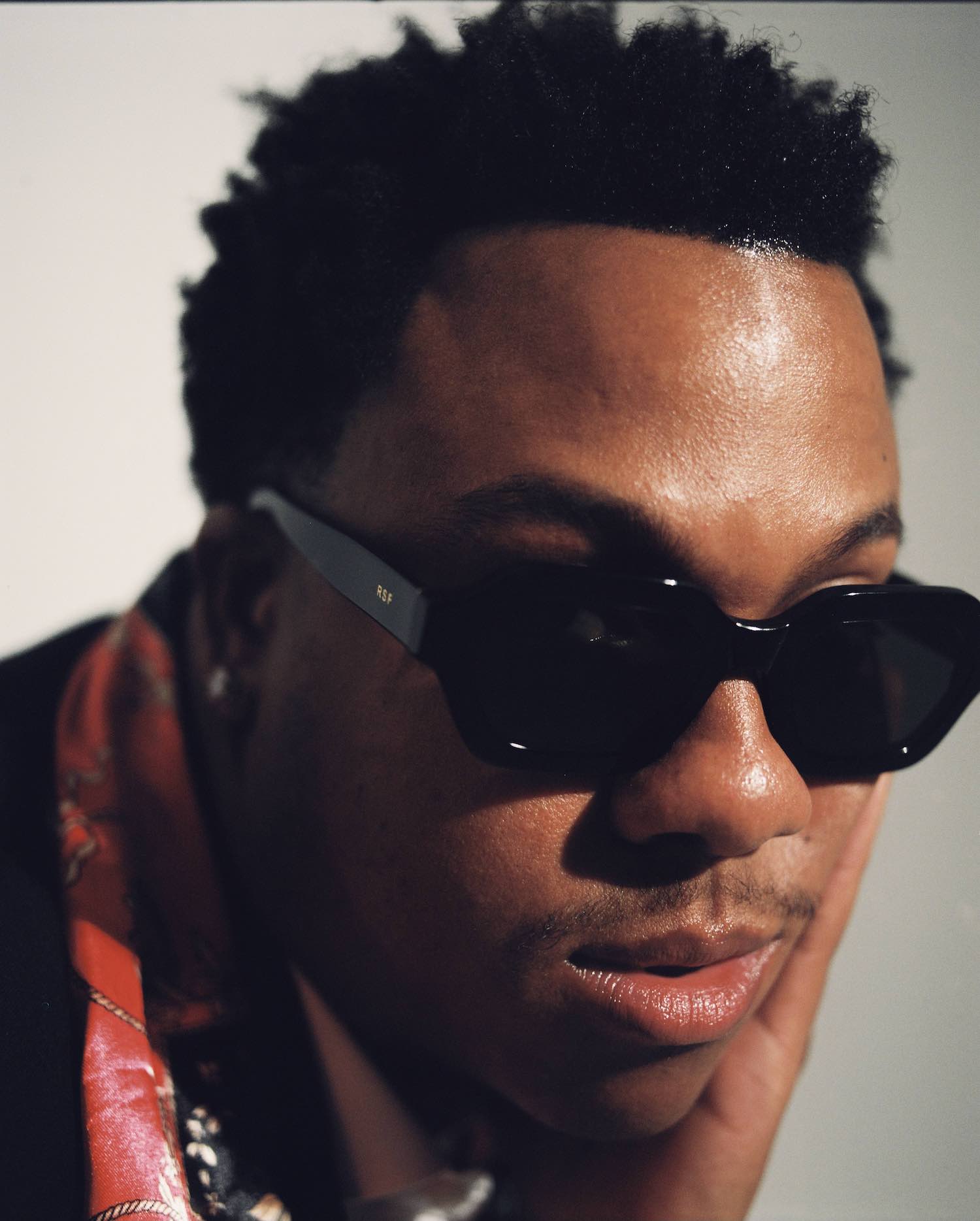
Let me dig into something you just said. Are Justin Lewis and Lee Lewis the same person?
Lee Lewis: I used to think so, but I don’t think so anymore… Justin is my given name, and the given name is not necessarily the name that you are most connected to. There are great things about Justin, he’s very sensitive and empathetic and compassionate, for sure, but also there’s some trauma tied to that entire part of my life. There’s being in the closet and things like that, that were very difficult growing up.
Whereas Lee is this mid- to late-20s version of myself that is comfortable and a lot more free, and vibrant and much more willing to take risks across the board. And this is the version of me that’s not scared. And it’s been funny, experiencing this transition from the old me to the new me. Obviously, there’s still parts of my old self that I will absolutely hold on to but Lee Lewis is the version that I prefer.
Do you go by that in the industry and speaking with people?
Lee Lewis: Yeah, I do. I’ve started to clock myself when I call myself “Justin” to people. I’ll introduce myself to new people this weekend as Lee, which has been fun. When I write my name down as Lee Lewis, I love seeing both sides of my family on there. I have qualities of my dad and I have qualities of my mom, and the more I lock into those things, the stronger and better a person that I’ll become.
That's crazy to think about, but you debuted last September, which feels like forever ago and it was almost a year, not quite there yet, but you introduced yourself through the song “Willing & Able.” What inspired you to choose that as your debut?
Lee Lewis: Yeah. It’s funny, I actually didn’t want to release that one first, but my squad at the label was like, this is the best one to launch with. And I was like, I trust y’all. So let’s run with it. And they were right. I usually like the real moody, sexy type of stuff the most, but “Willing & Able” was a good entry for me. Vocally, it’s great for me as well. I’m really excited to sing it live, too. And I got to make a really fun music video out of it as well. And I don’t know, it was like a less sad story compared to some of my other stuff, or like a less dramatic story.
It was a song about trying to see somebody at the wrong time, essentially, like wrong time, wrong place. A lot of dating, from what I’ve learned, is two people have to be in the right time and place for it to work, or at least to start. And “Willing & Able” was about the opposite of that; not having that synergy. It was about somebody that I was interested in, that lived out of the country, which obviously makes things very difficult. So I wrote that one with Sam Westhoff, who’s one of my very good friends. He used to be based out of Tulsa. He came to LA and we wrote it very quickly, he and I usually do super fast. It was the first song, and I think that was the right move after all.
Your latest songs, “Delusion” and “FUL,” definitely helped round out the image of who Lee Lewis is. What do they mean to you?
Lee Lewis: I’ll start with “Delusion.” “Delusion” was a big risk for me in terms of doing it and putting it out because I’ve always shied away from faster tempoed songs. I’ve always struggled to hear my voice in that space. That was a new experience for me, which was exciting. When we wrote that, I wrote that one with Sam as well and he produced it. I feel like we were listening to “Crazy” by Seal. And Seal is another big inspiration for me. And we were listening to that and I was like, I really would love to do something in this space. And we came into where the song is now. But story-wise, Sam was like, “What do you want us write about?” And I was like, “I feel very a bit delusional right now in my dating, where I’m ignoring red flags and I might be doing it on purpose because it’s a little fun, like the game of cat and mouse or whatever.” And before I knew it, we had a song and I was like, okay. And in the story, actually, I guess I foreshadowed what was to come nearly a year after I wrote it, which was difficult to process. I was like, “I’m really… I’m manifesting some things in some of these songs.”
But I made something good out of it. I was like, I made a new type of song that I’ve never done before. I can do slow songs and ballads fine, but like something at this tempo, with like the type of punch that it has, I was like, this is new territory for me. And now I’m like going forward. Okay, I know I can do an uptempo track. It’s gotta be the right like style and vibe for me. And then “FUL,” that’s the song that got things going for me. I wrote that one with Joseph before the end of 2019 and the pandemic happened. And when COVID chilled a little bit in 2020, I finally got to the studio with Jon Joseph to record it properly. And that was the song that taught me the most about being in the studio and like really singing in the studio versus not essentially. Like Jon was having to baby me through each line.
He was like, “You’re singing too loud, like you have a mic, you gotta have fun with it, you don’t have to blow it away.” Less vibrato, more dynamics. These were things I remembered from school; I could pull back. I remember singing that song in the studio and I was like, “holy sh*t, a mic makes everything so easy.” In classical music, you can’t use a mic – it’s not allowed. You use your voice and you’re there with the piano or whatever.
I’m used to big vocals – your voice is everything, right? But when I go do pop soul and pop music, it’s like, oh, I can whisper sing and I can use different dynamics and do these really weird runs, because everything’s so intimate in the studio. So that’s what we did. And then this was the first time I did like real vocal layering and harmonies. And I was like, oh my gosh, this is another thing I’m not used to doing. I can actually paint a sonic story with my voice. My voice really is the main instrument on these tracks, in my opinion. So it taught me a lot about singing in this new space, and writing as well. I was like, oh, yeah, there’s different ways to do this. We can change up the structure of the song. It doesn’t have to be first pre-chorus, first pre-chorus. I was like, I can have an outro. And it can be a little weird and quirky. And that’s what we did.
Take me through the experience of writing one of these songs. I know your voice is your primary instrument. Do you work ever on a piano or a guitar? Is it really a collaborative process with somebody else? What was that like?
Lee Lewis: Yeah. Some of these songs I started on my own with just piano and voice. So I did that with “You’re Gonna Kill Me” and “Darkest Hours.” I sat down in the pandemic for those and started playing around with different chords, singing different melodies. And I was like, this actually works. And in those situations, when I start by myself, I’ll slowly bring in people that I trust to add to it. So for “Darkest Hours,” I brought in Niki Black first. We had the same voice teacher growing up. And she helped me clean up the chorus. And then I brought in Shala to help me clean up some of the lyrics, and then I brought in Hope, and we cleaned up the background vocals…
I’ve been in some of the sessions with a lot of people and stuff like that, but it does not work for me. I’d rather work directly with the producer and write it from scratch with them or write it with one writer and take it to a producer. Anytime there’s too many people in the room, it’s a lot of opinions and I feel a little overwhelmed. So usually, I’ll start by myself, bring in people, or for “FUL” and “Rockabi,” I wrote those with Joseph and then took them to Jon Joseph to produce. And then “Delusion” and “Sugar Baby” and “Willing & Able,” I wrote those with Sam, and he produced them, and we did them together. One or two of those, I asked Shala to help with a line, but that’s the process: I pull in the people that I trust, and they will tell me if something’s bad and good.
It sounds like there's no rhyme or reason to how a track gets made, so long as it is reflecting yourself, and it is true to what you want it to be.
Lee Lewis: As long as my voice is still heard on the track and it’s still my story, I’m gonna pull in whoever I trust and whoever I know can help me get it to the best place possible. I’m not like, “I don’t want so-and-so on this track for whatever reason.” Let’s make it good, make it something that I’m proud to share essentially.
It's not usual that in this day and age, we're introduced to somebody who's already figured out the label side of things. You came to us last year, already signed to Bright Antenna and ready to roll. What's the story of your signing?
Lee Lewis: Yeah, I got lucky. I really did. I don’t know how the hell this really happened, but after I had gotten the demos of “Rockabi” and “FUL” done, this was 2020, maybe 2021, I was scrolling through Instagram and I saw this company Before the Data, they look for new artists and stuff like that. And I was like, oh, they’ve got really good taste. And they had a live stream thing where they were like, submit your unreleased songs. We are reviewing tracks and giving feedback, and we’re gonna have some A&Rs on there that are reviewing it and letting you know what they think. I was like, there’s no way that they’re gonna actually listen to mine.
I submitted “FUL” first and they didn’t get to listening to it. And then, they had another live stream where I submitted “Rockabi” and they listened and I was sitting there at the piano, and was like, “This is uncomfortable.” I’m like, “I don’t know what they’re gonna think,” [laughs] and all of that… A lot of people started, when they played it, they were like, “This is fantastic,” and then a few different labels DM’d me. So, managers DM’d me, the Before the Data team hit me up and they were like, “What’s your story? What’s going on?” I was like, “I don’t have a story, really.” I was just getting started, and it was very new. And then before I knew it, I started taking meetings and I had a lawyer, and then I signed with Bright Antenna!
That was not on the annual wishlist.
Lee Lewis: No. And I do a little goal thing every year, overarching goals. But I was like, “That wasn’t on there.” I was like, “I wanted to maybe put one song out, maybe do a little showcase,” but I ended up signing a deal with them. So yeah, it was a crazy, that was a crazy year. And then they flew me to London in November, maybe two months after I signed to go record “You’re Gonna Kill Me” with Rob Kirwan, who did “Take Me to Church” by Hozier. And I was like, that song inspired this one, sonically at least. So very full circle moment. I was like, “This is crazy.” I was like, “I’m a assigned artist and I don’t have a manager, an agent, a publisher, a publicist, none of it.” Now, I have some of those pieces, but it’s like, well, this is a really crazy way to start this out.
What are some of your goals for this year? What's on the manifestation board for 2024?
Lee Lewis: Yeah, I have a lot this year. I’m getting better at writing and faster, so I wanna write this next project in the next two or three months, and start rolling it out in August. I wanna do a bunch of shows. I have one on April 29th, my first one and I have my whole band now. There’s four to five of us on stage, all live, and no tracks. So I wanna do a bunch of shows. I’d love to open for somebody on a little mini tour in the fall or something like that and I’m like, start rolling out the second project, make sure that it’s even better than this one. I don’t know, keep growing in music as a whole. I feel like I’m really starting to get my momentum with these releases and people have been reaching out with every release being like, “Can we work together?” And I’m like, “Yeah, why not?”
Sometimes I don’t even listen to the music that they send; like, let’s go and see how it goes. Most of the time, it’s gone pretty well. But my biggest goal is to continue having fun with it because I’ve been in the place with music where it was tedious and a task, and there was no passion behind it. And I told myself, I’d never go back to that place. If I start to feel that way, I’ll have to take a break and get that passion back. So, as long as I’m having fun this year with it, that’s the biggest accomplished goal for me.
There’s nothing that feels as good as making music, singing it, and sharing it. It is such an intense sphere of emotions doing that whole process. It’s so vulnerable and painful at times, but equally, the most exciting thing that I can do. And I haven’t even done the shows yet, which is gonna add another piece to it. But all the adrenaline that I get in the studio or sharing music and waiting to hear feedback, that’s so fun to me.
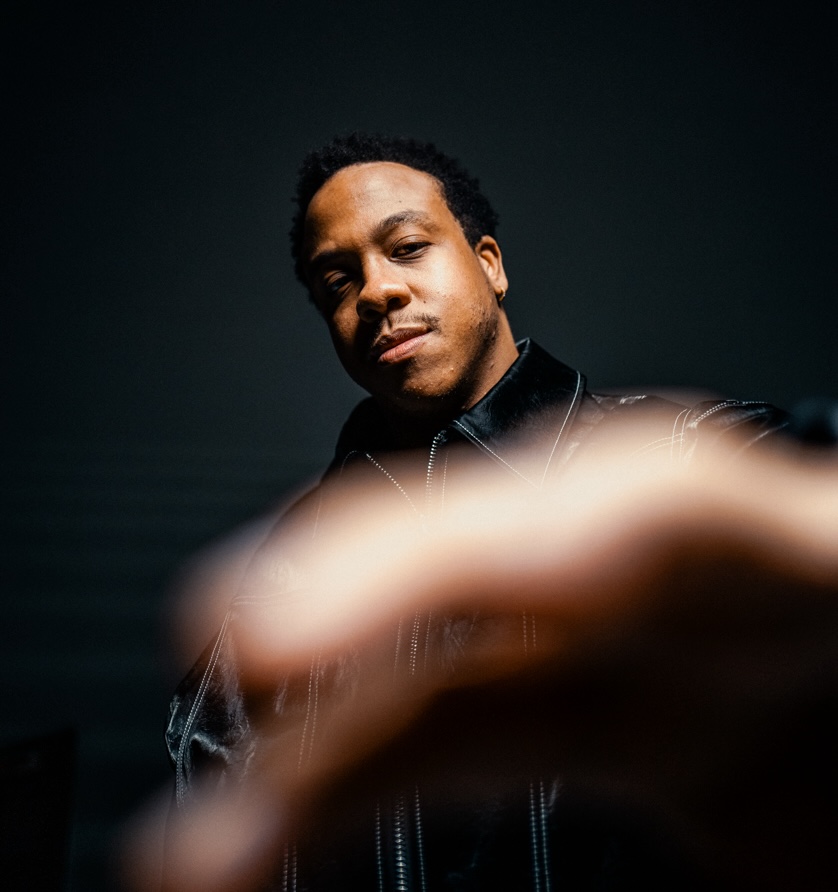
Are there any nerves when you put out a song? You've done it three times now; did it change from the first time?
Lee Lewis: Yeah, I’ve definitely gotten less nervous. I have to keep reminding myself that I’m actually putting out good music. This stuff is not bad, so why am I tripping? I made this and it’s taken me to certain places so far, so why am I tripping about the songs that I’m making? They’re good. When I put out “Willing & Able,” the night that it came out, I was freaking out. This feels so weird to me… and Sam called me or FaceTimed me that night. He was like, “Why are you not out?” I was sitting on the couch and I was like, “I’m gonna go to sleep.” He was like, “Why?” I was like, “I don’t really know… I don’t know what to do.” I was like, “It feels weird celebrating.” And he’s like, “No, this is a big deal.” But when “FUL” came out, I was like, “Okay, this is one of my two favorite songs on the EP. This is good shit and I’ve done this twice now.” So, I’m like, each song that comes out, the response has been great. I did a little poll on Instagram and I was like, “What’s your favorite of the three?” And it was damn near equal. So I was like, you know what? I’m doing okay.
You said “FUL” is one of your favorites. What's the other favorite out of the EP?
Lee Lewis: “Darkest Hours,” for sure. Story-wise, it’s about somewhat of a recurring thing that’s happened in my 20s, which is finding myself involved with men in the closet. So I can write well about that topic because unfortunately, it’s come my way many times. It happened last year as well, which was difficult, but I loved writing it and I wrote that one so much on my own. And then toward the end, brought in people, but I really sat down and wrote those lyrics out. Shala helped me clean them up. And melodically as well, the melody was all me for the most part. Hope helped me clean some things up.
Niki helped me clean up the chorus a little bit, but it was a very personal journey writing that song. And out of all my songs, that one is the one I definitely sing the best, live. When I’ve been doing my rehearsals with the band, I’m like, this is the best one live, easily. And part of it is because the story is so unfortunately ingrained in my life in my 20s that there’s a lot of emotion coming out when I sing it, when I sing it in the studio and when I’m doing it live. So I’m excited for that one to be heard by everybody next week.
That's awesome. I'd be remiss if we didn't also talk about “Rockabi,” only because it sounds like it's the song that started it all. I can also imagine. Obviously, I can't hear it, but I can imagine how good it would feel to bring it to life on stage in a live context. But yeah, where did this song come from?
Lee Lewis: “Rockabi,” those early 20s were a disaster… They were fun. I was out of control. Briefly, I was seeing this married guy, and he was very into me and it was fun for a bit, and then I felt so terribly guilty about this. Part of me wanted this to work, but it’s not going to. And then obviously, it didn’t. Joseph and I started writing about it and he’s like, “This guy’s bi, right?” So, that’s the “-bi” at the end… but that was the most therapeutic song – that one and “Darkest Hours” were the most therapeutic songs that I’ve written, because the experiences were so visceral and so chaotic and destructive.
There’s actually parts of “Rockabi” that are a bit exaggerated and also, certain parts of the story are a bit fictional on purpose. In the song I’m saying it as though like I wish that I could have talked to the man’s wife and been like, “This is what’s going on, can we both date him or be involved with him?” and in the song I’m like, “She’s down with it.” That is not the reality of that situation. So it was a fun exercise of writing about something that was difficult, putting it to this cool, retro pop soul-y sound. It is probably my most challenging song, vocally.
It is high falsetto, head voice for me. Jon really challenged me vocally in the studio, on the background vocals, like, those background vocals are tight and I was a little pitchy at times in the studio, but like we got it figured out, but it was a difficult song to do in many different ways: Emotionally, vocally, all of it. But I’m really excited to put it out. And maybe I’ll talk more freely about that story when it’s out. I don’t know. But all of these songs like they’re all based on real shit, it’s not like any half-assed emotions or anything like that. Like they are, for better or for worse, tied to direct experiences with other people.
“You're Gonna Kill Me” is a stunning finale. What inspired you to close the record with this song? And what does it mean to you now that it's such a wholly produced banger, for a lack of a better term?
Lee Lewis: I appreciate that. Honestly, in terms of closing it with this track, it was the only option. I don’t know where else this song would fit besides the end. Like I said, when I was writing it, I was very much inspired by “Take Me to Church” by Hozier. So this song has taken a few different shapes, actually. And it ended up being exactly what it needed to be: Something big and dramatic, just like the title. And I wrote this one with Shala and Niki. I started this one on my own. We had one iteration with Jon Joseph and another one with Rob Kirwan in London. Rob did “Take Me to Church,” so I was like really excited about that. So we took Rob’s version and I took it to Sam, and we added some things to it to make it just right. It ended up being my big old power ballad, a little Bond-y, which I love. That’s a dream of mine, is to do an original song for one of the Bond films.
I have my cool, sexy songs, I’ve got my warm vocal tracks, but I wanted something that was dramatic, and that reminded me of the opera space. This is my first aria, essentially, in my dramatic role of an opera. When we recorded it I saw myself onstage at the Royal Albert Hall or the Disney Concert Hall, or even Dorothy Chandler, singing it with a full orchestra, dressed in the most dramatic tuxedo possible with a tail, like I used to do in school, and singing the hell out of this dramatic power ballad.
The story, too, is, there’s two sides of it where sometimes queer people are involved with these men that are so deep in the closet that they’re a little scary. You worry about your physical safety sometimes because you’re living a free life and they’re not. They’re scared of what you’ve been able to do, the freedom that you’ve accomplished on your own. There have been times in the past where I’ve had some guys threaten me. I’ve talked about this with my gay friends, with my trans friends, everybody, they’ve all been in the same situations here, where there’s been a threat to your physical safety.
Sometimes it’s been scary for sure, especially when I was in Ohio, there were some guys there that were so deep in the closet that I knew this could be dangerous, for sure. So, there’s the actual real part there, but then, writing it, it’s about me at the time, even last year, going after men that were not right for me, that were struggling in their own way, and making life difficult for me, but then also there’s like the part of you that enjoys the push and pull, enjoys the rollercoaster of it. It’s a little bit masochistic. There’s that that piece of it. But I wanted to tell both of those experiences, the fear of your safety, but also you’re inviting or at least, I speak for myself, where I’ve invited some of this into my life because in the past, I’ve had a little thing for chaos. A safe man is not enough for me sometimes. Another thing I’ve been working through in therapy. We’re making great jumps there.
But it’s another real one. I’ve been in this situation where I feared for my safety, and then I’ve also been in a situation where I’m like, I know this person’s bad for me, but like it feels good. So, “You’re Gonna Kill Me,” in the song, I say, “You’re gonna kill me, I know what I’m getting.” That’s okay. I’ve accepted that and I want it and I embrace it. I hope that I never make a song like this again. I hope that this is, story-wise, that I never have to return to this. And that’s been something too, as I finished the EP that I said to myself, I was like, I don’t wanna make any more songs about being the subject of somebody that was in the closet or working with them through that. I don’t wanna make any more songs about fearing for my safety or being with a married man. I was like, I wanna record these songs and leave them there. I’ll sing them on stage, for sure, but I don’t need to continue writing about this stuff. I’m hoping that as these years go on, I can write about other things that I’m dealing with, but leave the stuff that I’ve grown from on these past EPs. That’s the goal.
It's definitely epic. In closing, what do you hope listeners take away from Something Burning, and what have you taken away from, creating it and now putting it out?
Lee Lewis: I’ll start with what I’ve taken away from it. As I’ve gotten older, I’m 29 now, which feels crazy to say… I’ve realized that Black queer people, in particular, we have always had to modify ourselves to make us palatable and accessible for everybody else. As a Black man, I was raised to behave a certain way, so I’m not perceived as a threat. And for my own safety, as a gay guy, that space isn’t always most welcoming to Black people. There are so many different intricacies between the both that, for most of my life, up until the last couple of years, I’ve had to modify myself for everybody else.
This project for me is really the start of me being able to put my experience, my emotions, my feelings first, and to be completely honest. I’m so lucky to do it through music because it makes me feel the most safe. It is my most vulnerable medium, but it’s also my strongest space. I’m a singer, and it’s been a blessing to be able to finally be completely honest and vulnerable, which are things that people like me don’t usually get to do. And to put it through music… I’ve taken away that from this process that music is actually the thing that makes me feel the most human, and it’s allowed me to be so much more open to the people around me, and free. This project has truly given me… In so many ways, it’s really helped me find my actual voice. I had my voice as a singer, fine, but my voice as a person has come from writing these songs and the next batch of songs I’m creating.
Something Burning may have started as a cry for help, but in every way possible, over the last year or so, I have really come into a space where I’m going from Justin to Lee, but also I’m going from a cry for help to truly rising from the ashes. As cliché as that is, I actually do feel that way. So that’s what I took from it. In terms of what other people take from it, I don’t know. I’m very curious to hear what people take from it because I’ve never experienced that before in general with anything that I’ve done. When I did classical music, people would be like, oh, your voice is beautiful. I’d be like, thanks, that’s awesome. But now, I’m telling real stories that I hope people connect to across the board. And I don’t wanna put any expectations of what people take from it. I’m beyond excited to hear what people take from it, without me saying anything.
The songs speak for themselves. The stories are there. So I’m like, y’all tell me how this connected to you or if it didn’t, maybe you didn’t connect to it. I’m excited that I made something and that I’m putting it out. Y’all can do what you wanna do with it. I don’t care. This is a gift and a blessing in itself, to actually create my own legacy, essentially, and put something out that will, no doubt, survive my lifetime on this planet. So y’all can let me know what you think, and that’s all that I care about right now.
Well, Lee, it has been a pleasure listening to you and sharing my thoughts on your songs over the past year. In the spirit of paying it forward, who are you listening to these days that you would recommend to our viewers?
Lee Lewis: Okay. Well, I’m gonna start out with two friends of mine because you gotta support your crew. HAFFWAY, that’s Sam’s artist’s name. He’s the best, obviously, for so many reasons.
And then FARR – I’ve been working with Roméo from FARR on some of my next batch of music. I’ve always been inspired by him and Linden; they’re both super talented producers, artists. So definitely say those two. Outside of that, I mean, I love Jamie Woon out of the UK. He hasn’t put out a project in nine years but his music is so good that I can keep repeating it. Jamie Woon, Lianne La Havas, Elmiene. I mean, I listen to so much music. I always say, go back and listen to Donny Hathaway, if you wanna hear, in my opinion, the greatest male vocalist of all time. Those are on my repeats right now.
— —
:: stream/purchase Something Burning here ::
:: connect with Lee Lewis here ::
Stream: “Delusion” – Lee Lewis
— — — —

Connect to Lee Lewis on Instagram
Discover new music on Atwood Magazine
© Matt Robertson
Something Burning
an EP by Lee Lewis

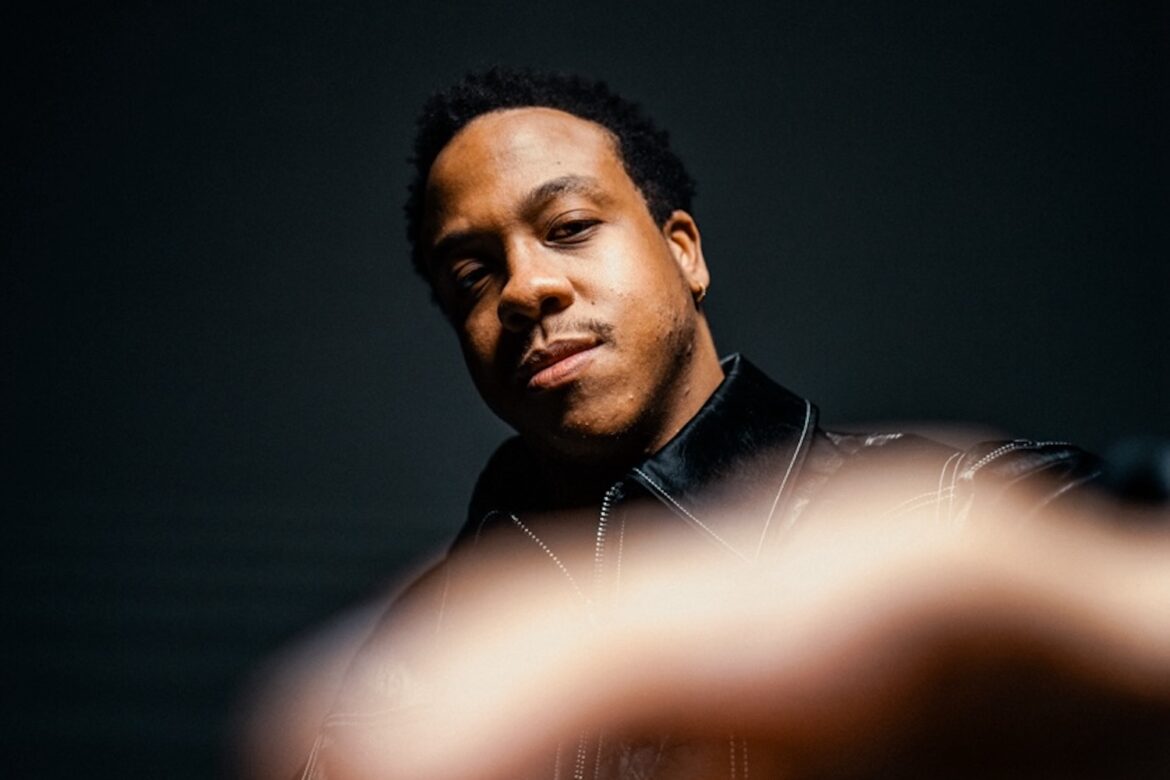
 © Matt Robertson
© Matt Robertson